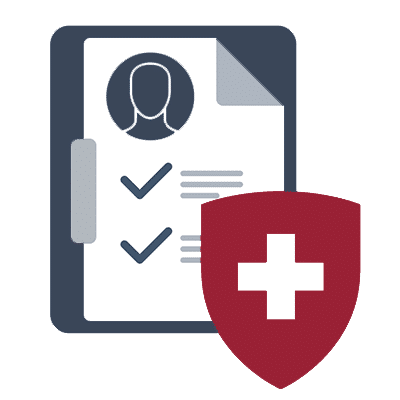Knowledge and Insights
OBBBA & MEDICAID COMPLIANCE: A COMPLETE GUIDE FOR HEALTHCARE PROVIDERS

The One Big Beautiful Bill Act (OBBBA) is reshaping the world of Medicaid billing and compliance, bringing both opportunities and new challenges for healthcare organizations. With the move to consolidated invoicing and more rigorous documentation standards, providers must rethink operational processes to meet the latest regulatory demands. In this article, we’ll take an in-depth look at the OBBBA’s impact, actionable steps for compliance, and how expert guidance from Mercadien can safeguard your organization’s future.
WHAT IS THE OBBBA & WHY DOES IT MATTER FOR MEDICAID PROVIDERS?
The OBBBA represents a fundamental overhaul in how Medicaid claims are submitted and processed. Instead of multiple fragmented bills for each patient encounter, providers must now generate a single, comprehensive invoice for all services—covering behavioral, physical, telehealth, and follow-up care. This approach is designed to:
- Reduce administrative complexity
- Increase transparency and accountability
- Streamline reimbursement cycles
However, these benefits are coupled with heightened compliance risks, as each claim faces greater scrutiny. Even minor errors can result in delayed payments, audits, or penalties—making accuracy and documentation more critical than ever.
KEY CHANGES FROM THE OBBBA AFFECTING MEDICAID PROVIDERS
UNIFIED PATIENT BILLING
- All billable services must be included in one claim.
- Billing staff and clinicians must collaborate to guarantee every service is coded and documented appropriately.
Risk: A missing or miscategorized service can delay reimbursement or trigger a Medicaid audit. See CMS guidelines on consolidated billing.
SHIFT TO BUNDLED & VALUE-BASED PAYMENTS
- Compensation is now linked to patient outcomes, satisfaction, and readmission rates—not just volume of services.
- Bundled payments encourage integrated care and cost control.
Explore more on value-based payment models.
STANDARDIZED CREDENTIALING & ENROLLMENT
- Uniform credentialing rules across states require staff credentials and enrollments to be current and federally compliant.
- Regular audits of documentation are now essential.
Review Medicaid provider enrollment resources.
TECHNOLOGY UPGRADES & TELEHEALTH EXPANSION
- Modernized EHR systems are necessary for consolidated billing and compliance tracking.
- Telehealth documentation must meet Medicaid’s clinical standards, supporting expanded virtual care options.
See official telehealth documentation standards.
EXPANDED COMPLIANCE REPORTING
OBBBA introduces new reporting requirements:
- Health equity metrics (race, ethnicity, access barriers)
- Internal grievance procedures
- Performance-based quality data
Failure to collect and report this information can result in financial penalties or program exclusion.
HOW OBBBA CAN IMPROVE OPERATIONAL EFFICIENCY
While OBBBA introduces new complexities, proactive preparation can unlock significant benefits:
- Faster claim processing
- Reduced data entry duplication
- Greater reimbursement accuracy
- More integrated, patient-centered care
However, these improvements only materialize when organizations adapt workflows and strengthen internal controls.
ACTIONABLE STEPS FOR OBBBA MEDICAID COMPLIANCE
AUDIT BILLING SYSTEMS
Evaluate if your current billing and EHR platforms support consolidated invoicing and value-based payments. Upgrades may be needed for full compliance.
RETRAIN TEAMS
All staff—from intake to clinicians—must understand new billing groupings, documentation standards, and reporting procedures.
CONDUCT MOCK AUDITS
Regular self-assessments help pinpoint gaps in documentation, billing, or credentialing before state auditors do.
MAP WORKFLOW PROCESSES
Chart how data moves from intake to billing to reporting. Identify inefficiencies or gaps that could jeopardize compliance.
COLLECT & ANALYZE QUALITY DATA
Implement systems for capturing patient satisfaction, treatment outcomes, and demographic data—crucial for performance-based payments.
FREQUENTLY ASKED QUESTIONS
HOW SOON MUST WE COMPLY WITH OBBBA?
Implementation timelines vary by state, but several Medicaid agencies have already adopted the consolidated billing model. Begin preparations now.
WHAT ARE THE CONSEQUENCES OF NON-COMPLIANCE?
Risks include delayed reimbursements, audit exposure, financial penalties, and exclusion from Medicaid programs.
DOES OBBBA APPLY TO ALL MEDICAID PROVIDERS?
Yes, it covers all entities billing Medicaid, including behavioral health agencies, hospitals, and home health providers.
CAN WE MANAGE THIS TRANSITION INTERNALLY?
Larger organizations may have the necessary resources, but many benefit from external expertise in risk assessment, staff training, and process redesign.
MERCADIEN: YOUR PARTNER IN OBBBA MEDICAID COMPLIANCE
Mercadien’s Compliance Oversight Services Group is uniquely qualified to help Medicaid providers successfully adapt to OBBBA. Our services include:
- Billing system reviews
- Mock audits and risk assessments
- Internal control evaluations
- Credentialing process improvements
- Comprehensive readiness planning
We work alongside your leadership to build robust compliance strategies that not only meet new standards, but also drive operational efficiency and financial resilience.
Contact us today to schedule a consultation and learn what you will need to build your custom OBBBA Medicaid Compliance Roadmap.
